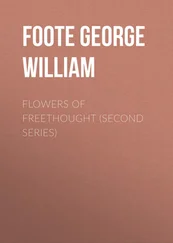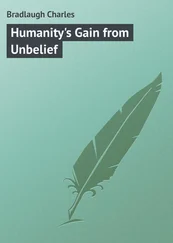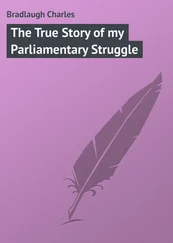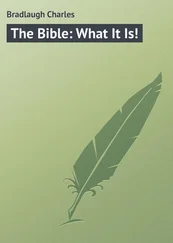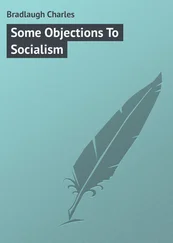George Foote - Reminiscences of Charles Bradlaugh
Здесь есть возможность читать онлайн «George Foote - Reminiscences of Charles Bradlaugh» — ознакомительный отрывок электронной книги совершенно бесплатно, а после прочтения отрывка купить полную версию. В некоторых случаях можно слушать аудио, скачать через торрент в формате fb2 и присутствует краткое содержание. Жанр: foreign_antique, foreign_prose, на английском языке. Описание произведения, (предисловие) а так же отзывы посетителей доступны на портале библиотеки ЛибКат.
- Название:Reminiscences of Charles Bradlaugh
- Автор:
- Жанр:
- Год:неизвестен
- ISBN:нет данных
- Рейтинг книги:4 / 5. Голосов: 1
-
Избранное:Добавить в избранное
- Отзывы:
-
Ваша оценка:
- 80
- 1
- 2
- 3
- 4
- 5
Reminiscences of Charles Bradlaugh: краткое содержание, описание и аннотация
Предлагаем к чтению аннотацию, описание, краткое содержание или предисловие (зависит от того, что написал сам автор книги «Reminiscences of Charles Bradlaugh»). Если вы не нашли необходимую информацию о книге — напишите в комментариях, мы постараемся отыскать её.
Reminiscences of Charles Bradlaugh — читать онлайн ознакомительный отрывок
Ниже представлен текст книги, разбитый по страницам. Система сохранения места последней прочитанной страницы, позволяет с удобством читать онлайн бесплатно книгу «Reminiscences of Charles Bradlaugh», без необходимости каждый раз заново искать на чём Вы остановились. Поставьте закладку, и сможете в любой момент перейти на страницу, на которой закончили чтение.
Интервал:
Закладка:
G. W. Foote
Reminiscences of Charles Bradlaugh
INTRODUCTION
The following pages are reprinted, with some alterations and additions, from the columns of the Freethinker . They are neither methodical nor exhaustive. I had the privilege of knowing Mr. Bradlaugh more or less intimately for twenty years. I have worked with him in the Freethought movement and stood by his side on many political platforms. It seemed to me, therefore, that if I jotted down, even in a disjointed manner, some of my recollections of his great personality, I should be easing my own mind and conferring a pleasure on many readers. Beyond that I was not ambitious. The time for writing Mr. Brad-laugh's life is not yet, but when it arrives my jottings may furnish a point or two to his biographer.
G. W. FOOTE, March 30, 1891.
REMINISCENCES OF CHARLES BRADLAUGH
When I came to London, in January, 1868, I was eighteen years of age. I had plenty of health and very little religion. While in my native town of Plymouth I had read and thought for myself, and had gradually passed through various stages of scepticism, until I was dissatisfied even with the advanced Unitarianism of a preacher like the Rev. J. K. Applebee. But I could not find any literature in advance of his position, and there was no one of whom I could inquire. Secularism and Atheism I had never heard of in any definite way, although I remember, when a little boy, having an Atheist pointed out to me in the street, Naturally I regarded him as a terrible monster. I did not know what Atheism was except in a very vague way; but I inferred from the tones, expressions, and gestures of those who pointed him out to me, that an Atheist was a devil in human form.
Soon after I came to London I found out an old school-fellow, and went to lodge with his family: They were tainted with Atheism, and my once pious playmate was as corrupt as the rest of them. They took me one Sunday evening to Cleveland Hall, where I heard Mrs. Law knock the Bible about delightfully. She was not what would be called a woman of culture, but she had what some devotees of "culchaw" do not possess – a great deal of natural ability; and she appeared to know the "blessed book" from cover to cover. Her discourse was very different from the Unitarian sermons I had heard at Plymouth. She spoke in a plain, honest, straightforward manner, and I resolved to visit Cleveland Hall again.
Three or four weeks afterwards I heard Mr. Bradlaugh for the first time. It was a very wet Sunday evening, but as 'bus-riding was dearer then than it is now, and my resources were slender, I walked about three miles through the heavy rain, and sat on a backless bench in Cleveland Hall, for which I think I paid twopence. I was wet through, but I was young, and my health was flawless. Nor did I mind the discomfort a bit when Mr. Bradlaugh began his lecture. Fiery natural eloquence of that sort was a novelty in my experience. I kept myself warm with applauding, and at the finish I was pretty nearly as dry outside as inside. From that time I went to hear Mr. Bradlaugh whenever I had an opportunity. He became the "god" of my young idolatry. I used to think of him charging the hosts of superstition, and wish I could be near him in the fight. But it was rather a dream than any serious expectation of such an honor.
When the new Hall of Science was opened I became a pretty regular attendant. I heard Mr. Charles Watts, who was then as now a capital debater; Mr. G. J. Holyoake, Mr. C. C. Cattell, Mr. Austin Holyoake. and perhaps one or two other lecturers whom I have forgotten. Mr. Austin Holyoake frequently took the chair, especially at Mr. Bradlaugh's lectures, and a capital chairman he was, giving out the notices in a pleasant, graceful manner, and pleading for financial support like a true man. He was working hard for the success of the enterprise himself, and had a right to beg help from others.
Mr. Bradlaugh, however, was the great attraction in my case. Perhaps I was more impressionable at that time, but I fancy he was then at his best as an orator. In later life he grew more cautious under a sense of responsibility; he had to think what he should not say as well as what he should. He cultivated the art of persuasion, and he was right in doing so. But at the earlier period I am writing of he gave a full swing to his passionate eloquence. His perorations were marvellously glowing and used to thrill me to the very marrow.
Gradually I began to make acquaintances at the Hall. I got to know Mr. Austin Holyoake and his charming wife, Mr. and Mrs. Bayston, Mr. Herbert Gilham, Mr. R. O. Smith, and other workers. By and bye I was introduced to Mr. Bradlaugh and shook hands with him. It was the proudest moment of my young life. I still remember his scrutinising look. It was keen but kindly, and the final expression seemed to say, "We may see more of each other."
In 1870 I wrote my first article in the National Reformer . For a year or two I wrote occasionally, and after that with tolerable frequency. I was also engaged in various efforts at the Hall; helping to carry on a Secular Sunday School, a Young Men's Secular Association, etc. Naturally I was drawn more and more into Mr. Bradlaugh's acquaintance, and when he found himself unable to continue the Logic Class he had started at the Hall he asked me to carry it on for him. Of course I was proud of the invitation. But the Class did not live long. It was not Logic, but Mr. Bradlaugh, that had brought the members together. Nor do I think they would have learnt much of the art from Mr. Bradlaugh, except in an empirical way. He had a very logical cast of mind, but as far as I could see he had little acquaintance with formal Logic as it is taught by Mill and Whately, whom I select as typical masters of Induction and Deduction, without wishing to depreciate the host of other authorities. Mr. Bradlaugh really gave his class lessons in Metaphysics; his talk was of substance, mode, and attribute, rather than of premises and conclusions. Mr. Bradlaugh and I were brought into closer acquaintance by the Republican agitation in England after the proclamation of the present French Republic. I attended the Republican Conference at Birmingham in 1871, when I first met my old friend Dr. Guest of Manchester, Mr. R. A. Cooper of Norwich, Mr. Daniel Baker, Mr. Ferguson the Glasgow Home Ruler, and other veterans of reform. We held our Conference on Sunday in the old meeting-place of the Secular Society, which was approached by very abrupt steps, and being situated over stables, was not devoid of flavor. On Monday the Conference was continued in one of the rooms under the Town Hall. A long political programme was concocted. I was elected Secretary, and had the honor of speaking at the public meeting in the large hall. It was my first appearance in such a perilous position. I was apprehensive, and I said so. But Mr. Bradlaugh put his hand on my shoulder and told me not to fear. His kind looks and words were an excellent tonic. When I rose to speak I thought next to nothing about the audience. I thought "Mr. Bradlaugh is listening, I must do my best." And now as I am writing, I recall his encouraging glance as I looked at him, and the applause he led when I made my first point. He was my leader, and he helped me in an elder-brotherly way. Nothing could exceed his considerate generosity. Other people did not see it, but I remember it, and it was typical of the man.
One incident at the Conference is worth noting. It occurred in the afternoon, when Mr. R. A. Cooper (I think) was in the chair. The question of Free Education was being discussed. Mr. Bradlaugh did not quite like it, nor did I. He asked me to go with him into an ante-room and consider an amendment. What it was I can hardly remember, although I recollect that Mr. Cooper was very sarcastic about it. Since then my own opinion has changed, as I dare say Mr. Bradlaugh's had changed; and the incident would not be worth recalling if it did not throw a light upon Mr. Bradlaugh's philosophy. He was always in favor of self-help and individual responsibility, and he was naturally hostile to everything that might weaken those precious-elements of English life.
Читать дальшеИнтервал:
Закладка:
Похожие книги на «Reminiscences of Charles Bradlaugh»
Представляем Вашему вниманию похожие книги на «Reminiscences of Charles Bradlaugh» списком для выбора. Мы отобрали схожую по названию и смыслу литературу в надежде предоставить читателям больше вариантов отыскать новые, интересные, ещё непрочитанные произведения.
Обсуждение, отзывы о книге «Reminiscences of Charles Bradlaugh» и просто собственные мнения читателей. Оставьте ваши комментарии, напишите, что Вы думаете о произведении, его смысле или главных героях. Укажите что конкретно понравилось, а что нет, и почему Вы так считаете.


